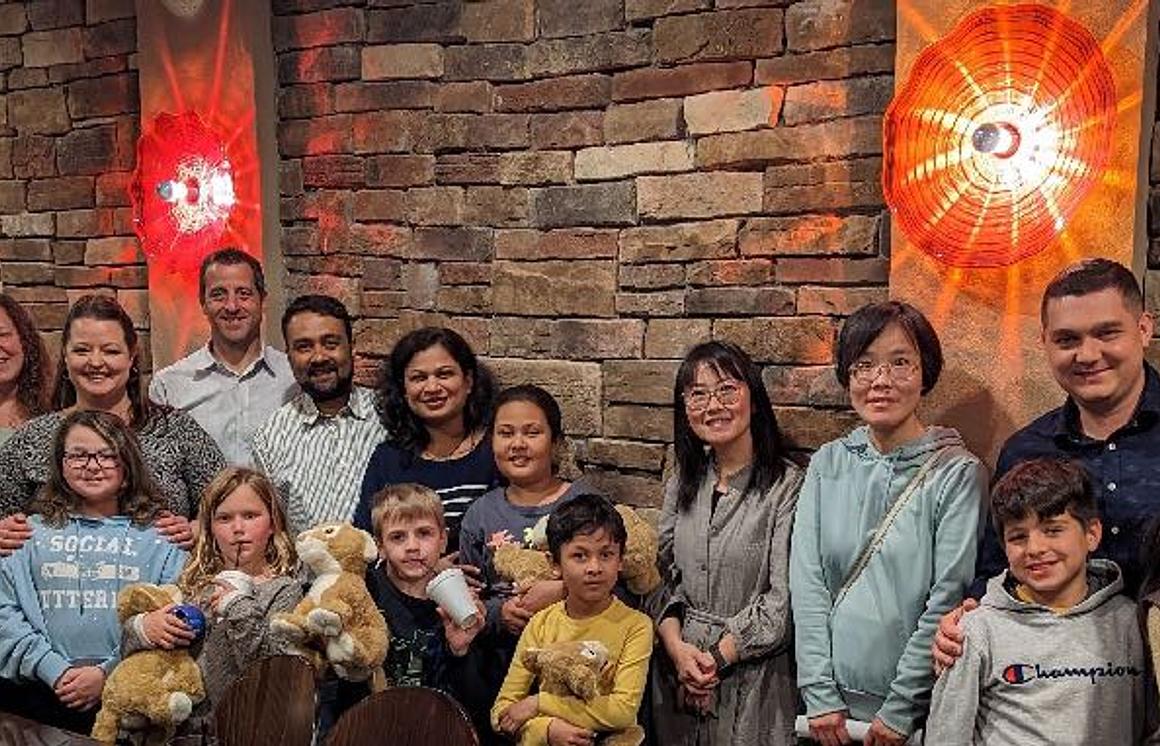The school co-lead had observed, “Even being asked if they [parents] were interested in joining the focus group had an impact. No one had asked before.” We had challenged ourselves as a small team of educators and parents to ask, “How do we capture real concerns in a way that people feel safe sharing.” As we were learning, this especially applied to our English Language Learner families.
First, we brought the ELL families together for dinner and really listened to them. It was a social atmosphere and ideas flowed naturally in this relaxed community meet-up. In this setting, we realized there are assumptions we make about what people want to know, sometimes we're right but sometimes we're not even close. For example, a parent shared that her son wanted to play baseball but didn't know how to play the sport or the American rules.
Building upon the power of this shared moment, we gathered for an evening of painting and games which allowed even more conversation and ideas for engagement. Seeing our children happy is a satisfaction that parents share and it was the same for our ELL families. Relationships can grow from these joyful experiences, and for us one result was a peer-to-peer family mentoring program that encourages families to create their own social networks. This is one way to empower their voices and create a greater shared agency.
Participation in the focus groups revealed that English Language Learner families did not join in. At the same time that Franklin-Regional typically enjoys high turnout for events, outreach to these missing families was clearly a need. This realization helped us become more intentional about making sure their voices were included. With grant funds, our educator/parent team scaled deeper and through collaboration with our families introduced a mentor/mentee program for the ELL families.
Whether it is surveys, focus groups, coffee chats, one-on-one conversations or social occasions as described here, provide ways for people to talk freely and express their views honestly. Taking time to dig deeper and to listen are essential to relationship building, to learning about the known and unknown needs and to enact innovations that reflect shared purpose and engagement.



.jpeg)
